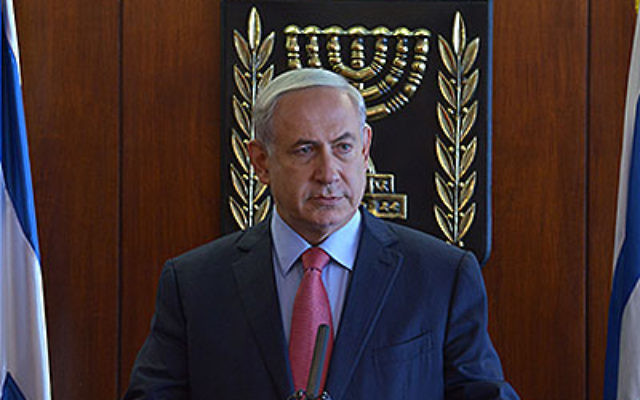Our View: Bibi’s Visit
Israeli PM Benjamin Netanyahu was scheduled to make his first visit to the Trump White House Feb. 15
Israeli Prime Minister Benjamin Netanyahu was scheduled to make his first visit to the Trump White House on Wednesday, Feb. 15. Because we go to press on Tuesday, we can’t comment yet on the outcome of the meeting, but we can tell you we’re hopeful that this conversation begins to provide clarity for the direction of the U.S.-Israel relationship under President Donald Trump.
While much has been said about the friendship between the two leaders and about Trump’s determination to be more steadfast in his public support for Israel than Barack Obama was, we still can only guess at the president’s intentions.
When Trump first spoke about Israeli-Palestinian peace talks during the presidential campaign, he opened himself up to criticism by suggesting that the United States had to be a neutral mediator.
He followed the examples of Bill Clinton and George W. Bush in promising during the campaign to move the U.S. Embassy from Tel Aviv to Jerusalem — and, like those predecessors, it’s possible that he’ll break that promise. Arab media have reported that Trump has sent the Palestinians the message that the embassy is staying put.
At the very least, the embassy move has slid down the list of presidential priorities; we’ll see by June 1, when Obama’s most recent waiver of the legal requirement to move the embassy will expire, whether Trump is being cautious or is having second thoughts.
More important is what Trump has in mind for U.S. policy on Israeli settlements.
Bush made a practical distinction between new settlements and construction in existing blocs close to the Green Line. Obama, by contrast, considered every housing unit built east of the 1949 armistice line, including those in traditionally Jewish areas of Jerusalem, to be an assault on peace.
Trump and his aides have both defended and criticized the settlements.
The perfect example of the confusion sown by administration statements came at the start of February when White House spokesman Sean Spicer said, “While we don’t believe the existence of settlements is an impediment to peace, the construction of new settlements or the expansion of existing settlements beyond their current borders may not be helpful in achieving that goal.”
The first part of that sentence seems to endorse Netanyahu’s position: The settlements aren’t standing in the way of peace. The second part seems to support Netanyahu’s critics: The expansion of the settlement enterprise is an obstacle to peace.
Meanwhile, one of Netanyahu’s coalition partners, Jewish Home leader Naftali Bennett, has warned of severe repercussions if either Netanyahu or Trump says the words “Palestinian state” in public. President Reuven Rivlin, a member of the prime minister’s Likud party, has floated the idea that Israel should press ahead with annexation of the entire West Bank — as long as the Palestinians receive the rights of full citizens at the same time.
Then there’s Iran. Neither Trump nor Netanyahu likes the 2015 nuclear deal, but now is not the time to ditch the agreement. Instead, the United States and Israel need to show a unified front against Iranian aggression, with support for Arab-Israeli cooperation and, if necessary, new sanctions in response to specific actions.
Given the immediate dangers in the Middle East, our hope is that the meeting produces more about Iran and Islamist terrorism than the Palestinians.




comments